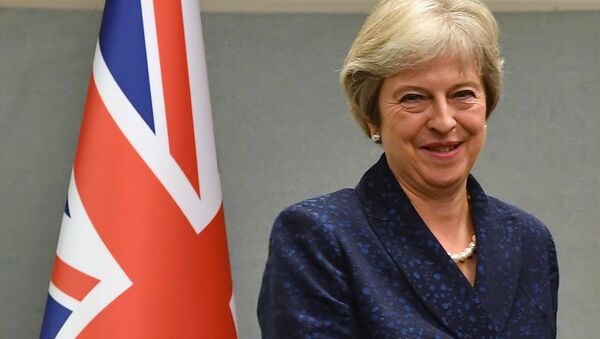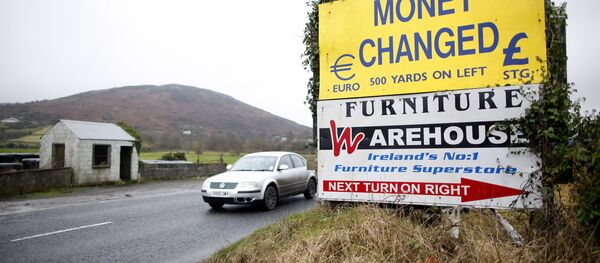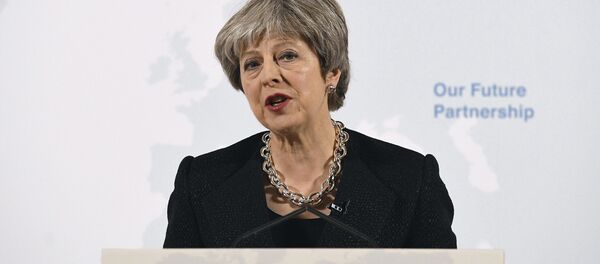Sputnik: In your opinion, why is Theresa May revealing the new immigration system plan now? Is the timing that important?
Richard Wellings: I think it’s very important. I think it’s all to do with her getting through the Conservative Party Conference, which is going on this week. She thinks that by taking a tough line on immigration, she can bolster her support among the party membership, because she is quite unpopular at the moment because of her proposed Chequers plan with the EU, which a lot of the Conservative Party members see as sellout, as a compromise too far. Of course, around 70% of the Conservative Party members voted for Brexit, so the idea of a compromise with the EU is proving deeply unpopular. So, this is a way of bolstering her leadership at the moment.
Richard Wellings: It was, but there is a lot of skepticism about whether it will actually be delivered, because a lot of Brexit supporters think that there will be further compromises with the European Union before a deal is actually achieved. This could all be talk with not much being delivered.
Sputnik: So [you mean that] it could basically all just be on paper?
Richard Wellings: That’s right. I think, given the difficulties facing the Conservative Party, it’s been wrenched apart, because you have a strong Remainer element and strong elements that support a clean Brexit. Given these difficulties, I think that Theresa May is thinking in terms of days and weeks ahead, rather than what happens in a few months’ time.
Sputnik: And yet, hypothetically or not, how different will this new immigration system be from the existing one?
Richard Wellings: It will be very different, indeed. It has more in common with a kind of points systems that we see in countries like Australia; it would have an enormous impact on migration patterns, with probably a big fall in migration from some of the newly acceding Eastern European Union countries such as Poland, Romania and Bulgaria. There would probably be a big increase in incomers from countries such as Australia, New Zealand and Canada.
Richard Wellings: I think the devil is in the detail here. I see one negative aspect of this, which could be hugely negative, is all the red tape and bureaucracy. This could involve employers having to fill in forms and also the workers themselves having to go through various hurdles before they can apply for jobs and settle in the UK. That could be very damaging, because it will tend to deter even skilled labor from coming to Britain. On the plus side, sometimes low-skilled workers will end up being a long-term drain on the economy because of the burden they place on the welfare state; they don’t pay that much tax, they often receive a lot of benefits, particularly if in the medium term they have families and settle here. So the cost of their presence may outweigh the benefits in terms of the British tax payer. It all depends on how the government gets the balance right.
Sputnik: If this new immigration system plan were to be implemented, how long before it would start to work and one could reap the benefits of it? Or would it take a really long time to polish off the details?
Richard Wellings: I think that it could be implemented fairly quickly in theory, but of course we expect to have a transition period after the Brexit deal. After next year’s official exit from the EU, there will be a transition period that could last for two or three years. During this period, existing migration rules could well continue and the change could be delayed further after that. Obviously, a lot of businesses will be affected; they will be lobbying hard to keep the policy that we have already, particularly those sectors that rely on low-skilled workers, such as the agriculture, care and hospitality sectors.
Richard Wellings: It’s important not to treat immigration as one single issue. It varies a lot according to the groups that one looks at. There have been major problems with certain groups; they have very low rates of employment and high dependency on the welfare state. These groups that suffer more social problems have tended to be the people that come from underdeveloped countries and who have come through refugee route rather than people who have come from the rest of the EU to work here. That’s really a big divide. A lot of the refugee groups do have severe problems hand heavy reliance on the government. But, of course, at the top end, people who come and work in highly skilled sectors and highly skilled jobs, they tend to be just a pure benefit to the UK economy and do make a huge contribution.
Sputnik: Has there been feedback? What does the man in the street think about this new immigration system plan? I’m guessing that a lot of people would be very pleased with it.
Richard Wellings: I think that’s right. If you look at the opinion polls, they suggest that control over migration tends to be very popular with ordinary people. It was one of the key issues among Brexit voters that determined their decision to leave the EU. It wasn’t actually the leading issue; it was more about the UK taking control over its own laws. But nevertheless, it’s definitely one of the top issues.
Richard Wellings: Obviously, some of the biggest losers would be those people who would have migrated to the UK from poorer parts of the European Union, such as Eastern Poland, where the unemployment is still very high, or Romania and Bulgaria, where the income levels are much lower than in the UK. They would be massive losers if those options were no longer available to them. Then if we look at some of the sectors that have a high portion of migrant workers on their staff that tend to be lower paid, the health sector will possibly [be affected], the care and hospitality sectors. The farms that rely on seasonal workers to get the crops will suffer very badly potentially, because it won’t be too easy to find the labor in the UK and they may find themselves having to shift the structure of production and perhaps grow different crops that are less labor intensive.
The views expressed in this article are those of the speaker, and do not necessarily reflect those of Sputnik.





